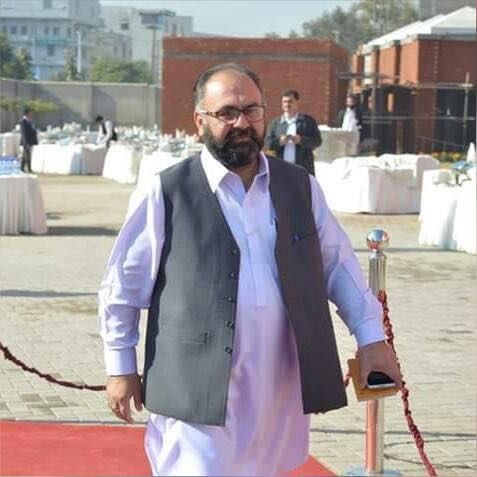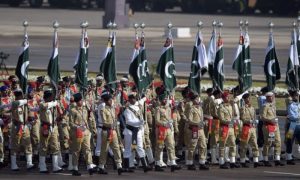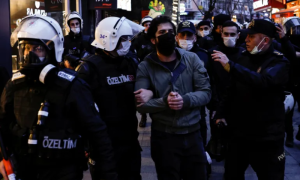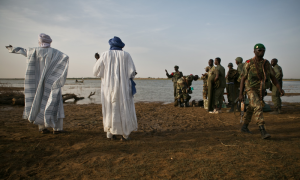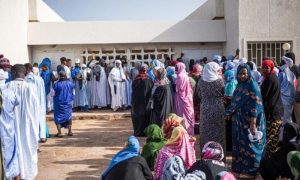The political process to overcome the prevailing mistrust between Pakistan and Afghanistan began at the start of the new year with the hope of resolving all outstanding issues between the two sides.
Pakistan has insistently asked Afghanistan to stop cross-border terrorist attacks from the Afghan side of the border. However, the Afghan Taliban interim government did not act on Pakistan’s requests. Instead of considering the evidence provided to the Taliban, it was contradicted as it is Pakistan’s internal issue.
However, Kandahar, the Political headquarters of the Afghan Taliban, has finally realized to revive improved diplomatic relations with Pakistan, that has gone worse for months mainly due to growing incidents of cross-border attacks.
The first ever high-level dialogue between the senior officials of both countries since February 2023 when the acting Afghan foreign minister Amir Khan Muttaqi visited Islamabad. Unfortunately, there was no follow-up of the understanding reached in Islamabad to relocate the Pakistani militants and their families to parts of the country away from the areas near the border.
Haji Mullah Shirin Akhund, currently governor of Kandahar and deputy head of military intelligence and strategy, led a high-level delegation to Islamabad to participate in a Joint Coordination Committee. Both sides discussed the issues relating to the Afghan border and facilitation of the cross-border movement at the sixth meeting of the committee, which has been simultaneously being held at Kabul and Islamabad.
The visit of Mullah Shirin Akhund, a trusted aide of the founding leader of the Afghan Taliban Movement, the late Mullah Muhammad Omar, and the incumbent top leader of the movement, Sheikh Haibatullah Akhunzada, is seen as a positive development to enter into productive and meaningful dialogue. Mullah Shirin was accompanied by senior officials of the Afghan ministries of defence, interior, and intelligence.
According to a statement issued by the ministry of Foreign Affairs, in a meeting with the caretaker foreign minister Jalil Abbas Jilani, both sides exchanged views on key issues of mutual concerns, including peace and security as well as people-to-people contacts. Pakistan told the visiting delegation that it was committed to having friendly ties with Afghanistan that benefited both the countries.
This is the right approach to having engagements with the top leadership of the Afghan Taliban, and more such high-level visits should be encouraged to resolve the key issues between the two sides.
How could the visit of Mullah Shirin be helpful? He is said to be one of the influential leaders of the Taliban, who was part of the negotiations with the US-led coalition in Doha, Qatar. High hopes have been attached to his visit to Pakistan, but it will take time. The issue is significant, such high-level visits need to be followed up through proper mechanisms.
The political and civilian leadership of Pakistan have categorically communicated to the militants to either surrender or face the action. Pakistan’s major demand of the Kabul government is to stop the Pakistani militants from planning and carrying attacks from the Afghan side.
The Afghan Taliban, as well as Pakistani Taliban groups, have been claiming that they were fighting from within Pakistan’s territory. The issue is not limited to Pakistani militants, but Afghan nationals were also found involved in several attacks inside Pakistan.
So far, the Afghan Taliban is asking Pakistan to resolve the issue politically through peace negotiations. However, such efforts could not yield the required results; rather, the militants regrouped and reorganized during the peace talks. Pakistan has engaged the militants in the past, but it resulted in more bloodshed and violence after the failure of peace talks.
The Afghan Taliban facilitated peace negotiations between the banned Pakistani Taliban and the government, but that collapsed after several months. By the end of 2021, several meetings took place between the negotiating teams of both sides. There was some progress, and a ceasefire was announced. However, there were continuous violations by the Taliban without claiming responsibility. The banned TTP used to allege the government for taking action against their fighters.
Thousands of militants have reportedly been resettled in parts of Khyber Pakhtunkhwa, taking benefit of the ceasefire. Following the breaking of the ceasefire unilaterally, there was a rise in terrorist attacks on the security forces and police. Pakistan’s policy is clear as the militants were asked to lay off arms, return to normal life, and dismantle their militant groups, but they did not agree.
This issue has become much more complicated for Pakistan and Afghanistan. Pakistan is asking for action against them or handing them over to Pakistan, but so far, no commitment from the Afghan Taliban side. What is stopping the Afghan Taliban from taking action against them? Are the Pakistani militants being strong enough or some elements within the ranks of the Afghan Taliban supporting them?
Pakistan and Afghanistan’s bilateral ties have been affected by this issue of cross-border terrorist attacks. These non-state actors need to be checked to revive friendly relations between the two states. None of the countries could afford the crisis-like situation as they are next-door neighbors and share the longest border. Any tension in the region could destabilize the whole region, particularly Afghanistan.
It is now the senior leadership of the Afghan Taliban to take notice of the security situation and resolve the issue politically. All the issues could be resolved, including the trade, Afghan refugees, and people-to-people cross-border movements, once serious efforts are made.
The high-level dialogue with the decision-making leaders of the Afghan Taliban and Pakistan sitting across the table could resolve the issues. Pakistan should respond in the same manner by sending a senior-level delegation to Kandahar to take forward the process ahead.









